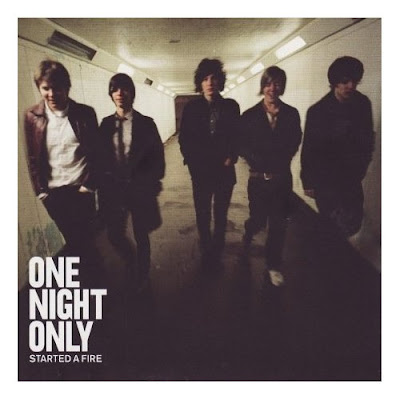 Cast: Hayden Christensen, Rachel Bilson, Samuel L. Jackson, Jamie Bell
Cast: Hayden Christensen, Rachel Bilson, Samuel L. Jackson, Jamie BellDirector: Doug Liman
Screenplay: David Goyer
Running time: 1 hr 28 mins
Genre: Sci-Fi/Action/ Adaptation
CRITIQUE:
The art of teleportation has never been captured before in cinematic history, or if it has been captured already then that’s beyond my film knowledge. So for a start, JUMPER leaps in the originality category. It’s a thrilling concept: rare human beings in our world who have the ability to “jump” across time and space, gifted individuals who could slip through places like wandering ghosts. The ones chasing them are called Paladins, ancient religious fanatics who advocate that God is the only one who could be at all places at all time. Unfortunately, this is the deepest you could get to the story. If you’re looking for something with depth, then this is not the place. Might as well jump to another sci-fi flick with intelligence, because apparently the makers of this film seemed to have not have realise that even science fiction should make sense too. What we get from JUMPER is a dazzling rush of experience that sometimes blinds from the stare-or-you’ll-miss-it mad adrenaline onslaught – then we’re left at the surface dizzy, not able to penetrate deeper into the very shallow epicentre of the film.
It starts with a good premise, like every superhero film begins. We meet David (Hayden Christensen) in his local secondary school sporting a fancy spot on this girl (yes, just like every superhero movie seem to begin with), and soon discovers his teleportation ability as he escapes the frozen river and suddenly appears on the public library soaking wet. Minutes into the film, all you see are plotholes, so big and obvious like black holes that make you wonder why the hell they exist and why did the screenwriters seem to have not noticed, or perhaps ignored in sacrifice for bigger jam-packed action-adventure bravura. David’s family background served as a mystery so impenetrable, that the plotline about his estranged mother (Diane Lane, in a criminally underused character) was sacrificed to appear at the end of the film, only to convolute things much further. Also, the Paladins attachment to the NSA is a gigantic eyebrow-raising conundrum that they seem to play like Gods themselves, tracing everyone in the world, even if they have no identities, such as David whose existence is just between his apartment, the bank vault, and the many touristy spots in the world. Even the exotic locations seem to cheat the audience from their viewing pleasure. It’s not that they’re not magnificent to behold, but these spots felt like they were just used for Hayden Christensen to appear in them and pose his boyish charms, may it be posing under an umbrella atop Big Ben in rainy London, or having a cosy tea atop the Pyramids of Egypt.
 If you’re expecting for well-drawn characters, sadly again, JUMPER is not the perfect place to be. Hayden Christensen, after his STAR WARS regime and training, despite all of his efforts, still looked wooden in the acting department and could never quite pull off a transparent, three-dimensional character with at least believability of his existence. The character of David needs more gravitas, but then again, sadly the script by David Goyer doesn’t allow the characters to find profundity. Rachel Bilson is still in her OC-esque, and underplays as one of the daftest leading ladies on screen, who always follow David around and never demands a burning answer. Samuel L. Jackson’s Roland is the chief Paladin, and even him, his origins cannot be traced anywhere around the plot. Thus leads us to Jamie Bell as the loose-canon of a Jumper, Griffin. Thank God for the casting director to involve Jamie Bell in this almost catastrophic project. Billy Elliot no more, he still injects a much needed wit, boisterousness and magnetism, which are facetiously absent from JUMPER.
If you’re expecting for well-drawn characters, sadly again, JUMPER is not the perfect place to be. Hayden Christensen, after his STAR WARS regime and training, despite all of his efforts, still looked wooden in the acting department and could never quite pull off a transparent, three-dimensional character with at least believability of his existence. The character of David needs more gravitas, but then again, sadly the script by David Goyer doesn’t allow the characters to find profundity. Rachel Bilson is still in her OC-esque, and underplays as one of the daftest leading ladies on screen, who always follow David around and never demands a burning answer. Samuel L. Jackson’s Roland is the chief Paladin, and even him, his origins cannot be traced anywhere around the plot. Thus leads us to Jamie Bell as the loose-canon of a Jumper, Griffin. Thank God for the casting director to involve Jamie Bell in this almost catastrophic project. Billy Elliot no more, he still injects a much needed wit, boisterousness and magnetism, which are facetiously absent from JUMPER.Doug Liman, after his THE BOURNE IDENTITY and the rather spectacular and winning MR & MRS SMITH directing duties, may find that JUMPER would be the one that will mess up his directing curriculum vitae. He sure knows how to handle spectacular scenes, especially the breathless chase of David and Griffin for the explosive detonator, cutting from the streets of Tokyo, to the ice of the Arctic, to the warzones of Afghanistan – it’s amazing for a scene to relentlessly grip us to our limits. The scenes of teleportation were almost flawlessly executed. Then again, that doesn’t mean the movie is.
THE FINAL WORD:
The spectacular chase scenes are worth checking out for, but they cannot compensate the film’s lack of logical respect or swathe the evident plotholes. JUMPER needs a good dose of coherence, cruise control, and better scriptwriter. It leaves us breathless, but its storyline gives no scintilla of depth and it doesn’t leap – instead it falls.
RATING: C+



































